Hacktivist Group Reveals Identities Of Several IRGC Hackers
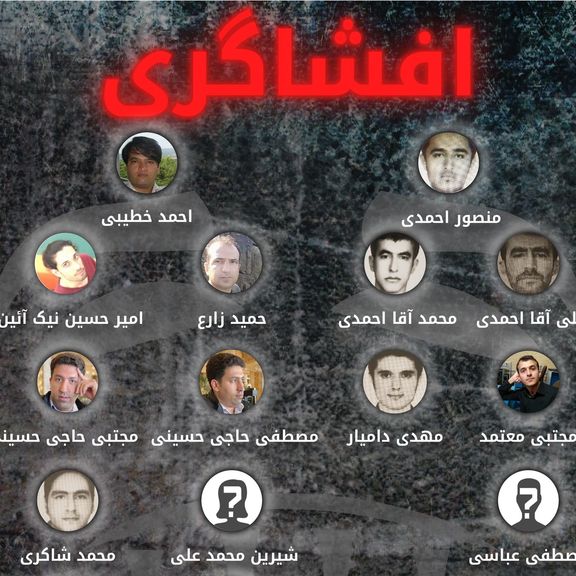
A hacking group has revealed the identities of several hackers working for the cyber division of Iran’s Revolutionary Guard (IRGC).

A hacking group has revealed the identities of several hackers working for the cyber division of Iran’s Revolutionary Guard (IRGC).
In their report, the hacktivist group, called ‘Lab-Doukhtegan’ or ‘Sealed Lips’, said these IRGC hackers “repeatedly attacked targets in the US and Europe with the aim of extortion," making use of "the security loopholes discovered in European and American organizations.”
Early in June, the ranking member of the US Senate Foreign Relations Committee condemned the cyberattack by Iran-backed hackers on Boston Children’s Hospital last summer.
Describing the attempted attack as “deeply disturbing,” Idaho’s Republican Senator Jim Risch said that “it’s typical of a regime that’s synonymous with global terrorism.”
Later in June, Israeli Defense Minister Benny Gantz said an IRGC cyber unit called “Shahid Kaveh” conducted research to damage ships, gas stations and industrial plants in several countries including Britain, the US, France and Israel.
Gantz hinted that Israel -- which is widely believed to have waged cyber war against Iran's nuclear facilities and other infrastructure -- may retaliate physically against enemy hackers.
Iran has been repeatedly accused of cyber-attacks against the West, Israel and rival Arab countries in the Middle East.
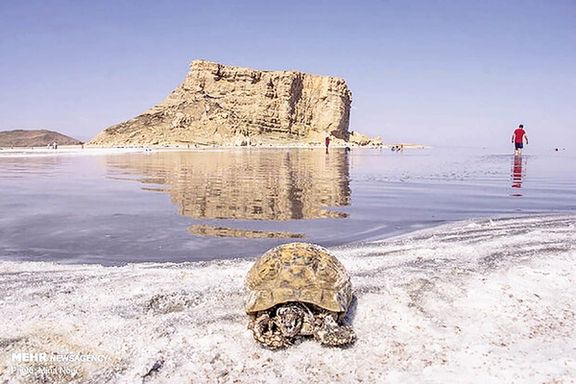
Police arrested activists when hundreds protested in northwestern Iran Saturday to government neglect of the country's largest lake that has shrunk by 95 percent.
Lake Urmia (Orumiyeh), near Western Azerbaijan Province capital of the same name, has lost 95 percent of its water over the past three decades, despite government claims that it has appropriated hundreds of million of dollars to prevent the environmental disaster.
At its greatest extent, Urmia was the largest lake in the Middle East and sixth largest salt lake in the world, with an original surface area of 5,200 square kilometers in 1970s, or 2,000 square miles. It had shrunk to 700 sq km by 2013. The lake began shrinking in the 1980s due to water mismanagement and climate change.
Activists had called for protests Saturday and a few hundred people gathered in Orumiyeh city chanting slogans against the government and parliament. Reports say that authorities have dispatched riot-control reinforcements to West and East Azerbaijan provinces and arrested at least 13 activists and citizens in Orumiyeh, Tabriz and other cities in the region. The detainees have been transferred to unknown locations.
The chief of police in in Western Azerbaijan, Rahim Jahanbakhsh, called the protesters “villains” and anti-regime elements.
Activists had issued calls for protests in the past week, concerned about the complete disappearance of lake Urmia.
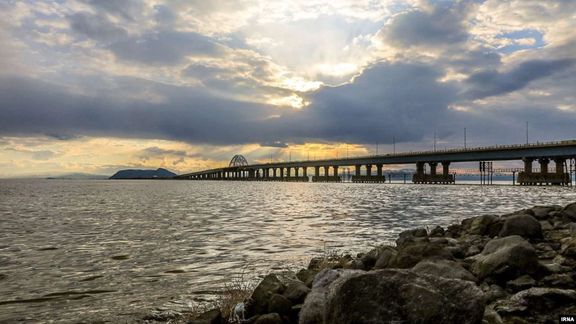
In the past decade successive governments pledged money and projects to prevent the shrinking of the lake.
Authorities announced in 2014 that the government of President Hassan Rouhani appropriated 150 trillion rials – which can be about one billion dollars considering the lower rate of dollar against rial back then – were allocated for a seven-year plan as well as another $10 million aid by Japan and some other pledges by the United Nations Food and Agriculture Organization (FAO) and the United Nations Development Program (UNDP) to save the lake. It is not clear whether or how the earmarked budgets were spent.
The lake began to revive briefly in the spring of 2019 when Iran’s drought came to a temporary end with months of heavy rains and floods. The lake’s surface expanded back to 2,000 sq kilometers by April 2019. But precipitation began to decrease again, with the 2021-2022 season becoming the worst dry period in recent memory.
The lake’s partial recovery would have been a golden opportunity for the government to act to save the ancient body of water, which is part of an ancient sea covering the region, together with Lake Van in present-day Turkey and the Caspian Sea, the largest inland lake.
But the government failed to unwind the disastrous water management mistakes that contributed to Lake Urmia’s gradual death.
Experts say groundwater extraction and using the water of the once bountiful Zarrineh Rud river− which feeds Urmia Lake − for irrigating apple orchards planted in the last two decades have both contributed to the lake shrinking by nearly 95 percent in volume over the past 20 years.
During the presidency of populist politician Mahmoud Ahmadinejad a policy of food self-sufficiency and reinforcing agriculture led to unrestricted use of groundwater, building of ill-planned dams and other unscientific decisions. In 2021 alone, more than 100,000 tons of apples grown in the area went to waste with a failure to secure export markets.
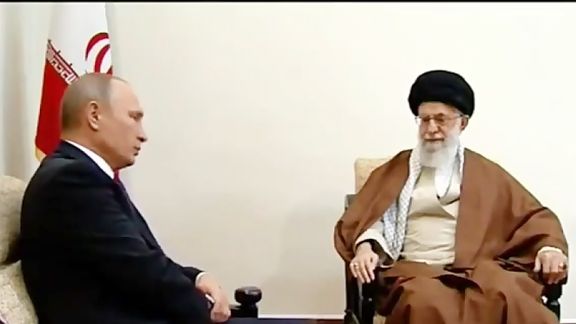
Iran's government has sent a bill to parliament to approve the outlines of a cooperation agreement with Russia for information and intelligence cybersecurity.
Rouydad 24 news website in Tehran briefly mentioning the bill and asked the opinion of two lawmakers, who did not have full information about what the agreement exactly stands for. Apparently, the proposal was adopted by the government in May, and it sent a brief note to parliament recently soliciting its blessing. This is also odd because it is not a treaty requiring official parliament approval.
Alireza Pakfetrat, a lawmaker from Shiraz, claimed in an interview on Saturday [July 16] with Rouydad 24 that "Iran is a superpower not any smaller than Russia." He said that Tehran should deal with Moscow based on equality and give only as much as it receives. The government should also safeguard sensitive information, whether in relation to Russia or any other country.
The bill refers to “information” but the Persian term etela’at could mean both "information" and "intelligence.”
The proposed agreement popped out as Russian leader Vladimir Putin was slated to visit Tehran and meet with Supreme Leader Ali Khamenei next week. Some see his visit as a sign of alliance between the two countries and a signal to indicate that Russia is standing alert to developments in the Persian Gulf. The lawmaker's comments could be a prelude to Putin's visit.
Pakfetrat spoke about Iran's power on the same day that leaders of Persian Gulf littoral states expressed concern over Iran's threats to the region's security during a summit with US President Joe Biden, who said the United States will not leave the region to Russia, China and Iran.
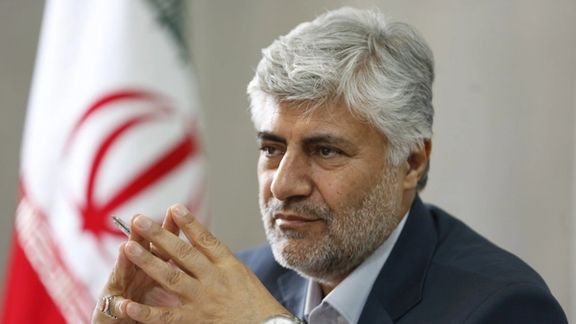
IRGC-linked Tasnim News Agency on Friday broke the news about the launching of Iranian navy’s first drone carriers and posted a picture of a drone-carrying vessel. At the same time, US National Security Adviser Jake Sullivan twice this week insisted that Iran might be getting ready to sell military drones to Russia to be used in Ukraine.
The agreement with Russia is also aimed at facilitating "investment in the infrastructure of information security," as well as expanding cooperation in the areas of security and exchanging information/intelligence.
The discussion of security cooperation and information sharing with Russia marks a turning point in Iran's position on the issue. For many years Tehran has been insisting on the secrecy of its information. According to Rouydad24, critics say the bill shows the extent of Russian infiltration in the Iranian establishment.
Pakfetrat said: "We are still committed to the 'Neither East, Nor West' motto, so our cooperation with Russia should take place on the condition that Iran's security secrets do not fall in the hands of other countries."
He claimed that the parliament is equally sensitive to Iran's exchanges with other countries and there is no difference in this regard between Russia and other states. "We will not allow any infiltration," he insisted.
Meanwhile, ‘reformist’ lawmaker Massoud Pezeshkian said he was not aware of the details of the bill, "however, I am sure every country is following its own interests. If Russia comes to us, it is for the sake of its own benefit. Our politicians should consider Iran's interests and not allow the other side to do whatever it wishes."
Asked if this was against the "Neither East, Nor West" motto, Pezeshkian said: "We have distanced ourselves from that policy long time ago. We have let the West go and now we are part of the East."
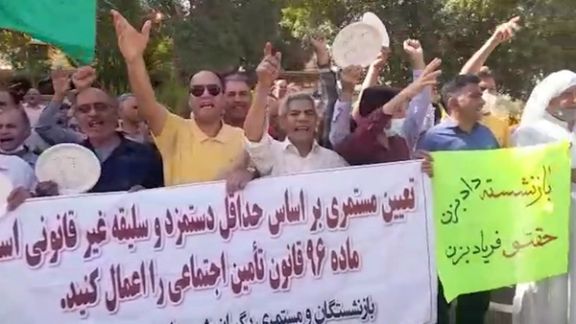
Iranian pensioners held nationwide demonstrations on Saturday, and chanted slogans against the Islamic Republic’s authorities.
Similar to previous rounds of protests, which have become more frequent on the backdrop of economic hardship, pensioners called on the government to increase pensions by 38 percent, as stipulated by the Supreme Labor Council. Retirees are demanding pension increases more on par with rising prices of essential foods, saying that the current payments are not in line with decrees by the Council.
According to videos published on social media, about 20 cities across the country, including capital Tehran, Kerman, Ardabil, Esfahan, Rasht, Mashhad, Tabriz, Khorramshahr and Ahvaz, were the scene of large protest rallies.
The retirees gathered in front of the governorate buildings or the provincial offices of the Social Security Organization, which is in charge of paying pensions.
They chanted slogans against President Ebrahim Raisi and Parliament Speaker Mohammad Bagher Ghalibaf such as “Death to Raisi” and “Death to Ghalibaf” as well as other insults about the clergy, whom many people blame for the dire situation in the country.
With food prices rising faster after four years of United States’ ‘maximum pressure’ sanctions, Iranian workers and retirees have been holding regular protests or strikes to demand higher salaries. Last month, Iran’s currency fell to a historic low of 333,000 rials to the US dollar in June.
During the past weeks, widespread protests by workers,shop owners, and teachers protesting against poverty, inflation, and low wages, have been met with heavy-handed crackdown and numerous arrests by the security forces.
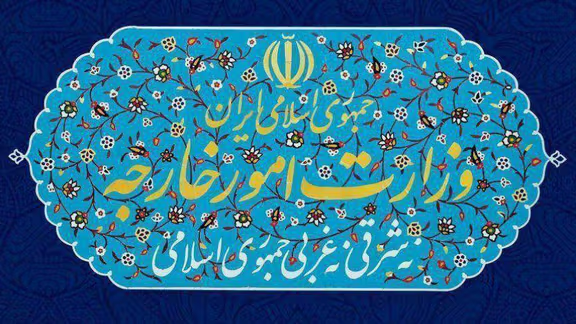
Iran's Foreign Ministry has sanctioned a group of US officials and lawmakers over their alleged support for exiled Albania-based opposition group Mujahedin-e Khalq (MEK) organization.
In a statement published on Saturday, the ministry listed 61 senators and representatives – democrat and republican -- as well as former and current officials for supporting the group, which the Islamic Republic calls ‘Monafeqin’, using the Quranic term that means ‘hypocrites’.
Former Secretary of State Mike Pompeo, Trump’s lawyer Rudy Giuliani, former National Security Advisor John Bolton, and Senators Ted Cruz and Cory Booker, as well as the chairman of the US Senate Foreign Relations Committee, Bob Menendez, are on the list.
Several of the individuals were previously blacklisted by the Iranian government for other reasons.
Iran is furious about the group’s influence among Western politicians, particularly in the US, especially following the sentencing of a former Iranian jailor to life imprisonment by a Swedish court over executions of political prisoners in 1988, and repeated cyberattacks on Iran’s infrastructures some apparently by MEK.
Iran’s foreign ministry accused Sweden of giving into pressure by the MEK, that Tehran considers a terrorist organization. Most of the approximately 5,000 prisoners summarily executed in prisons were members of MEK serving their sentences.
The Islamic Republic holds the MEK responsible for bombings and assassinations in Iran in the 1980s and for its alliance with Saddam Hussein until his overthrow in 2003.
In April, Iran sanctioned 24 more Americans in a largely symbolic move, as months of talks to revive the 2015 nuclear deal have stalled.
In a similar move announced in January, Iran imposed sanctions on 51 Americans, many of them from the US military, over the 2020 killing of General Qassem Soleimani in a drone strike in Iraq.
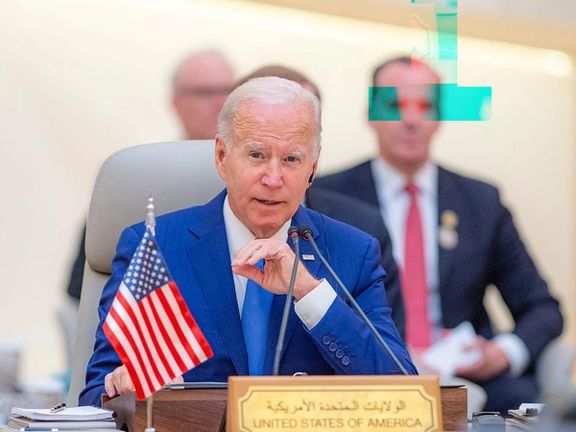
President Biden said Saturday that he will not leave the Middle East to Russia, China and Iran - adding focus to this week’s Tehran visit of President Putin.
The United States’ release of satellite imagery Saturday showing Russian officers in Iran in June and July reviewing drones (unmanned aerial vehicles, UAVs) reflects Washington’s disquiet over the Iran-Russia relationship. Jake Sullivan, the US National Security Adviser, said last Monday that Tehran planned to supply “several hundred UAVs, including weapons-capable UAVs, on an expedited timeline.”
But Washington is also uneasy with the continuing Russia ties of both Saudi Arabia, which coordinates oil supplies with Moscow through Opec+, and the United Arab Emirates, which has become a haven for Russian money. Israel too has resisted US-led efforts to impose sanctions on Moscow.
“The United States is going to remain an active engaged partner in the Middle East as the world grows more competitive, and the challenges we face more complex,” Joe Biden said at the summit of nine Arab states in Jeddah, Saudi Arabia. “It’s only becoming clear to me how closely interwoven America’s interests are with the successes of the Middle East…We will not walk away and leave a vacuum to be filled by China, Russia or Iran.”
Biden repeated that the US would not allow Tehran to acquire a nuclear weapon, while his expressed preference for diplomacy came with a commitment not to deploy US forces. “Today, I’m proud to be able to say that the era of land wars in the region, wars involving huge numbers of American forces, is not underway,” he said.
The summit began with some Arab leaders concerned over Washington’s commitment to the region, especially since the chaotic withdrawal from Afghanistan last summer after a two-decade military presence. All hedge in one way or another. As well as coordinating global oil supplies with Russia, Riyadh has around $65 billion annual trade with China, and has since last year opened dialogue with Iran to reduce tensions.
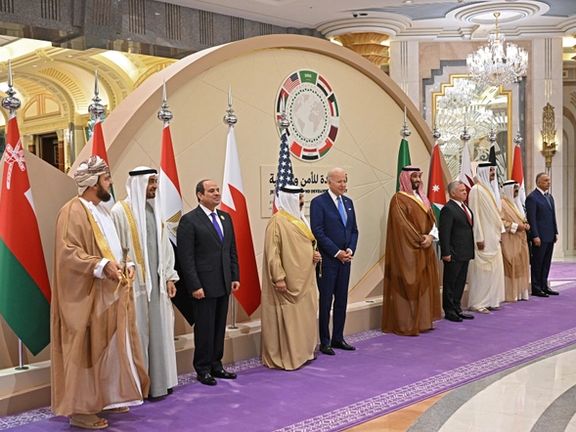
Saudi Arabian Foreign Minister Prince Faisal bin Farhan Al Saud said Saturday he was unaware of any discussions on a Gulf-Israeli defense alliance, which some have speculated as the logical outcome of air-defense cooperation under US supervision.
‘Much diminished president'
Prince Turki Al-Faisal, a former Saudi intelligence chief and ambassador to the US, gave on US television Friday a withering assessment of Biden as a “much diminished president.” Saudi state media made light of Biden’s words at the summit Saturday over human rights and highlighted remarks from Crown Prince Mohammed bin Salman pointing to US hypocrisy over Jamal Khashoggi, murdered by the Saudis in 2018, given its own treatment of detainees in Iraq.
In another meeting, Biden invited Sheikh Mohammed bin Zayed Al Nahyan, president of the United Arab Emirates, to visit the US – two days after reportedly the UAE July 14 arrested Asim Ghafoor, Khashoggi’s lawyer, while in transit in Dubai.
Biden’s differences with the Saudis over Iran were smoothed over. A joint statement noted Biden’s commitment to “supporting Saudi Arabia’s security and defense” and committed the two sides to “further deter Iran’s interference in the internal affairs of other countries, its support for terrorism through its armed proxies, and its efforts to destabilize the security and stability of the region.”
JCPOA or tougher action?
But while the statement “stressed the importance of preventing Iran from acquiring a nuclear weapon” it made no reference to the 2015 Iran nuclear deal (the JCPOA, Joint Comprehensive Plan of Action), which Biden remains committed to restoring in the face of Saudi opposition. Differences between Biden and the Israeli leaders over the need for tougher action against Iran broke through displays of mutual congratulations earlier in the week when the US president was in Israel.
Putin’s visit to Tehran, due Tuesday, will see a trilateral meeting with Turkish president Recep Tayyip Erdogan. While Syria will be high on the agenda – under the ‘Astana format’ of the three countries – Erdogan has also been active in mediating between Russia and Ukraine.
Speaking Friday by phone with his Ukrainian counterpart Dymytro Kuleba, Iranian foreign minister Hossein Amir-Abdollahian reportedly expressed “opposition to Russia’s attack on Ukraine” in what appeared a shift in Tehran’s language if only for public consumption. There are also hopes in Tehran that Putin can offer assurances over Russian grain supplies disrupted by the Ukraine crisis.